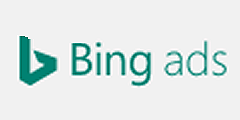New research by hotel booking and marketing provider travel tripper finds that earlier “golden triangle” and “F-shape” eye-tracking patterns no longer apply to Google hotel SERPs as they’re currently being presented.
Google searches for a particular hotel now produce a SERP with Google's business listing and a metasearch price-finding tool in the right column of the page.
Researchers tested this new configuration by presenting hotel SERPS (3 different) to 100 test subjects for 15 seconds, recording eye tracking and administering a follow-up survey.
Here's a typical example of the new pattern they found:
Users tended to begin at top left (AdWords ads), move then to top right (Google hotel business listing), then to the metasearch tool below the business listing, then to the Google organic listings in the left column.
And the content of the Google hotel business listing tended to influence how deep users were willing to go into the organic listings.
Also, the more AdWords ads there were on a page, the longer it took users to get to the organic listings.
When asked which link they would most likely click on, users said:
- An AdWords ad 55%
- An organic listing 28%
- A metasearch link 10%
- Elsewhere (hotel photo in business listing, etc.) 7%
But 44% said that they would be less likely to click on an AdWords link if they knew it was an ad. (And 24% said they would be more likely to click the AdWords link.)
Also 28% of users didn't realize the AdWords links were ads, and 43% didn't realize the metasearch links were also ads.
A few users said they chose a link to click on because they believed it led directly to the hotel Web site. (It didn't always.) (This trend wasn't statistically significant.)
So, what does this prove?
- Google has reconfigured its hotel SERPS in such a way as to result in more clicks on AdWords ads, thus making Google more $$$$. (This is Google's "Prime Directive".)
- Significant percentages of consumers still don't recognize paid ads when they encounter them in Google search, even though some express a prejudice against such ads.
- If you're running an AdWords campaign for your hotel and some third-parties are also - so there are comparatively many AdWords ads on the Google SERP for your hotel name - you need to have the most compelling AdWords ad, even if you are #1 in organic returns - because many people will click through one of the AdWords ads before ever getting to the organic listings.
Go here for more on how Google Ads and SEO will up your tourism game.

 - David
- David











Comments on 2017 study of Google hotel searches reveals new eye-tracking pattern